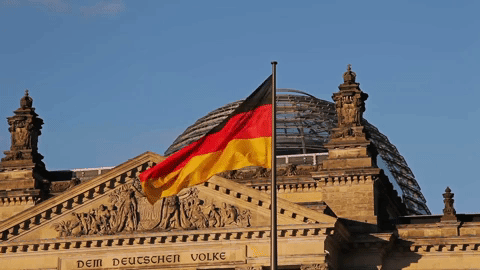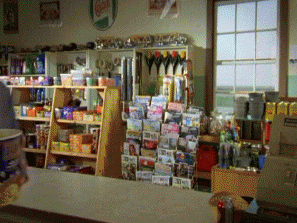Germany’s medical marijuana market is lucrative, and Canadian LPs want in. Thankfully, Germany also wants Canadian companies to show them what’s up.
Germany’s Shortage
While Germany, the hottest cannabis market in the EU, has legalized medical marijuana, the country is in a nation-wide shortage of cannabis for a number of bureaucratic reasons.
As a result, Germany’s distributors will be dependent on imports for a number of years, and Canadian companies can potentially earn fantastic margins by selling to them in the short term, while simultaneously building the start of an EU cannabis empire.
When Germany legalized medical cannabis, they didn’t issue any cultivation licenses for actually growing it on German soil. Companies that wanted to supply the country with medical marijuana needed to show “prior medical marijuana cultivation expertise”; and no German companies have any such legal experience, so they weren’t eligible to bid.
A German distributor’s only option is to import cannabis that’s coming in from the Netherlands and/or Canada, because those are the only two countries that are exporting it to them.
Germany’s regulations and certification processes make it all too difficult to enter the market in time to supply it fully, creating a shortage which, if projections are right, is expected to go on for another 18 months. Incoming cannabis needs to meet Germany’s list of standards, AND come from countries with similar drug attitudes, drug policies, and regulatory board structures.
That presents a big opportunity for North American suppliers, because the Netherlands isn’t really exporting much.
Better growth potential
To say the opportunity is large would be putting it bluntly.
“Germany could have bigger market significance than Canada, one day.”
– Vic Neufeld, CEO of Aphria.
And Aphria (APHA.T) isn’t alone on this. The Bank of Montreal (BMO.T) called Germany the number one “Near-Term International Market Opportunity” for Canadian LPs, and they’re not prone to over-hype.
The reason for this is simple: Germany has the largest population in Western Europe and they have the largest economy in the EU. Their marijuana environment is powder-dry, and Canada’s about to give it the spark it needs for some truly explosive growth.
By the time Germany’s companies are allowed to cultivate in any significant way, Canadian LPs will already dominate, with already established supply chains, brand name recognition, the best margins on supply deals, and for non-Canadian companies to compete, they’ll need to spend a lot of money playing catch-up.
Everyone Equity Guru has talked to, from Canadian LPs to German lawyers, has echoed the notion Germany is growing rapidly. They’re big and set to get bigger, especially if the nation can be established as the gateway to Europe.
Echoing BMO’s report, Arcview Market Research projects that marijuana sales in Germany will reach $1.6 billion in 4 years, an almost 7-fold increase from today’s value, with more than 691,000 legal consumers in the country by 2022.
Currently, there’s about 30,000 patients, all of whom are buying marijuana at exorbitant prices from pharmacies, because that’s the only way to legally purchase it.
Germany buys higher
German medical marijuana sells for up to $25 a gram at retailing, doctor-to-patient prices.
And Canadian LPs are capitalizing. Beleave (BE.C) signed a supply agreement with Canymed in Germany to sell medical cannabis at CAD $10.50 per gram (€7). The average sale price to a provincial distribution centre in Canada can come in around $3-4 for the same quantity. Often times, for the exact same product.
Germans buy low while Canadians sell high and, for once, buy-low sell-high has nothing to do with market timing.
It’s a match made in heaven.
That’s why the two countries enjoy doing business together.
How Canada is taking action
On October 21st and 22nd, the medical marijuana sectors of the two countries were all under one roof, attending the 3CM Conference, or if you prefer, “The Canadian Cannabis Capital Markets Conference.”
An investor’s summit focused on growth and supply for the German medical market, it attracted big names like Aurora Cannabis (ACB.T), Ascent Industries (ASNT.C), The Green Organic Dutchman (TGOD.T), and Pure Global (PURE.V), all of which will be doing the leg-work in providing Germany with quality product.
And it’s not the first conference of its kind.
Germany already has incoming product from Aphria, Canopy (WEED.T), Aurora (ACB.T), Wayland Group (WAYL.WT.C), and Tilray (TLRY.Q). Beleave is selling product to Germany at CAD$10.50 per gram. Pure Global, which has a pharma-focus, is one of a number of companies that is on track to getting GMP certification, and are in Germany looking for the right distribution partners currently.
But Germany isn’t the only option to entering Europe.
To secure European favor, better land prices, and a more progressive set of government regulations, several companies are establishing themselves outside of Germany and then plan on working their way in.
Century 21 Investments (CXXI.C) positioned themselves into Ukraine by obtaining a first-of-its-kind CBD license for the country, and plans to expand into the European market from there. Out-of-country expansion plans are going to be a recurring theme, as Germany seems more willing to allow imports from other countries than allow production on German soil.
CROP Infrastructure (CROP.C) has a deal in Italy. Others are in Malta, and Greece.
The Green Organic Dutchman has acquired HemPoland in order to produce hemp, derive CBD from said hemp, and establish a European facility that will help them expand.
HemPoland is one of the biggest hemp and CBD companies in Europe. Good hemp means good CBD, and their hemp is great. Their CBD brand is one of the most well recognized in Europe, and since it’s marketed as a food supplement, it’s completely legal to consume in Germany. It’s called Cannabigold, and anybody can buy it.
So long as you don’t market CBD as medicine, it’s legal to put in food, beverages, tinctures, and even capsules.
Ascent Industries is also entering the market from Denmark, and they already have a GMP certified distribution center there. COO Reid Parr laid out their reasoning for doing so plainly.
Denmark doesn’t have a dense cannabis smoking population, nor does it have one that is expected to dominate the European demand for cannabis in the next 5 years. But it has a good-enough cannabis smoking population, it has market demand, and it allows the sale of all kinds of derivative products – edibles, water solubles, beverages, oils, concentrates. Just name it and they’ll green-stamp it by lunch.
Like TGOD, Ascent has been heavily focused on creating derivative products, soluble products for edibles, and has dedicated a significant portion of their company to researching and developing cannabis solutions.
It’s almost as if this whole Europe thing has been mirroring what we’ve been saying at EG for a while now. CBD is the future; Hemp is the best source of CBD; and Canadian LPs aren’t going to want to sell product to the government at wholesale prices unless there’s an oversupply.
https://equity.guru/2018/11/02/hemp-shift-livewell-lvwl-v-heritage-cann-c-ascent-asnt-c-isodiol-isol-c-lead-cbd-chase/
CBD dominant, and hemp happy
During an over-the-phone interview with Equity Guru, a German banker and cannabis company consultant told us the CBD market in Germany is already growing at a faster rate than medical marijuana. CBD in Germany isn’t allowed to be prescribed as medicine, but it’s legal for food products, beauty products, and cosmetic products. And that’s all it needs to be approved for.
CBD is already its own brand. You don’t have to market it as a medicine for it to fly off the shelves. It gets all the advertising it’ll ever need from the internet.
Which means all of those companies who have been focusing on beverages, edibles, and water soluble solutions are going to be able to effortlessly convert those products into cash through the German market.
Hence why TGOD was confident enough to appoint a “Chair of Beverage Science and Research Division,” and why Canadian LPs aren’t waiting for edibles to get legalized in Canada before investing heavily in their development.
CBD in Germany is currently a bureaucratic grey zone, with ‘recreational’ use allowed and medical use still illegal, though consumers likely prefer being able to buy it directly from HemPoland, rather than through a government system that is making buying medical cannabis a Kafkaesque nightmare with a price-gouging cherry on top.
So may the free market reign supreme.
Watching these markets play out is going to be great. If you’re invested in them.
Companies like TGOD, Ascent, Crop, C21, and Pure Global will be set to succeed on German soil if they so choose. They have a fantastic focus in regards to CBD, edibles, beverages, and quality pharma grade weed, and they’re smart to target the largest economy in Europe, the largest population in Europe, and a nation with an incredible cultural influence on much of the EU.
The European cannabis market could ultimately be valued as high as €194B (CAD$291B), which means they’re going to matter big time. I’m talking the Irish, Swiss, Danish, Greek, Spanish, Italian, French markets… All of them. There’s not a single EU country that’s not expected to legalize medical marijuana by 2022.
In Canada, LPs can’t market themselves, can’t sell directly to stores outside of provincially mandated/operated dispensaries, and have ultimate control of their brand removed from them.
But in Europe? The race is on to dominate before the US wakes up.
– Jamal Al-Bayaa
Disclaimer: C21, Pure Global, CROP, TGOD, and Ascent are all Equity Guru clients.
https://equity.guru/2018/10/19/professional-cannabis-players-discounted-theyre-actually-building-businesses/




